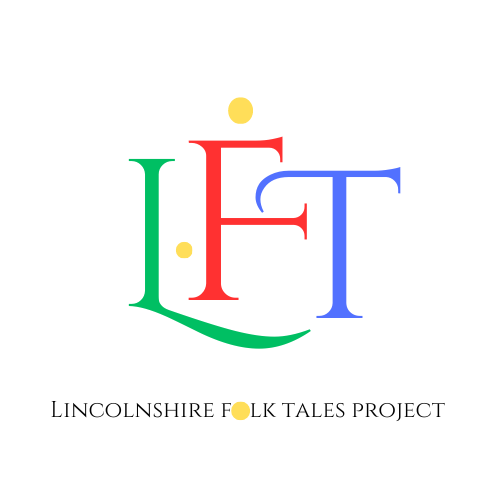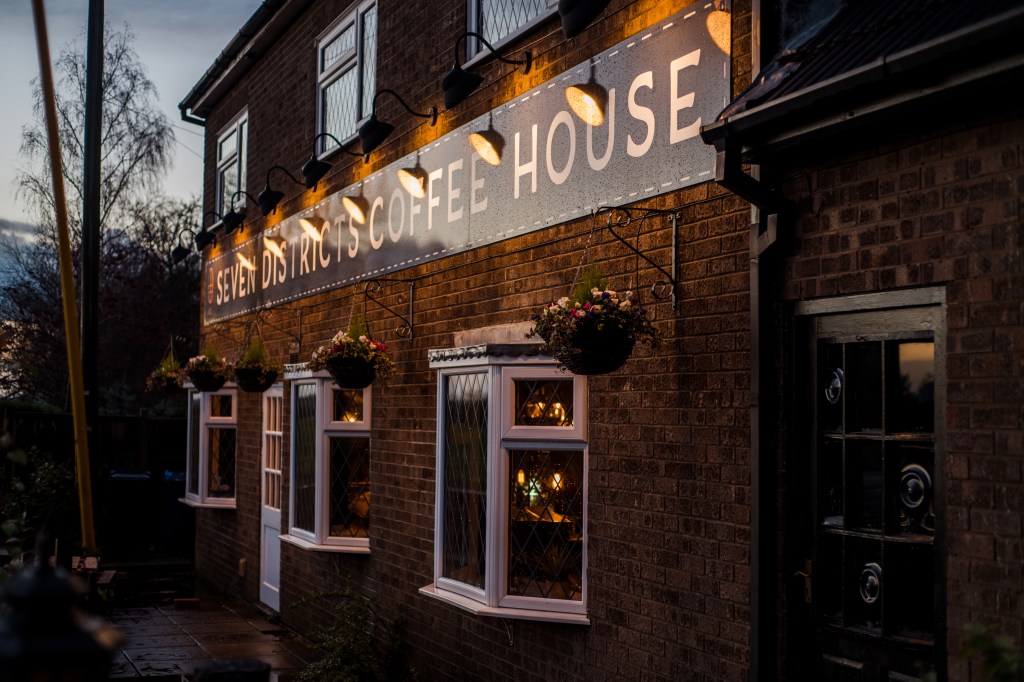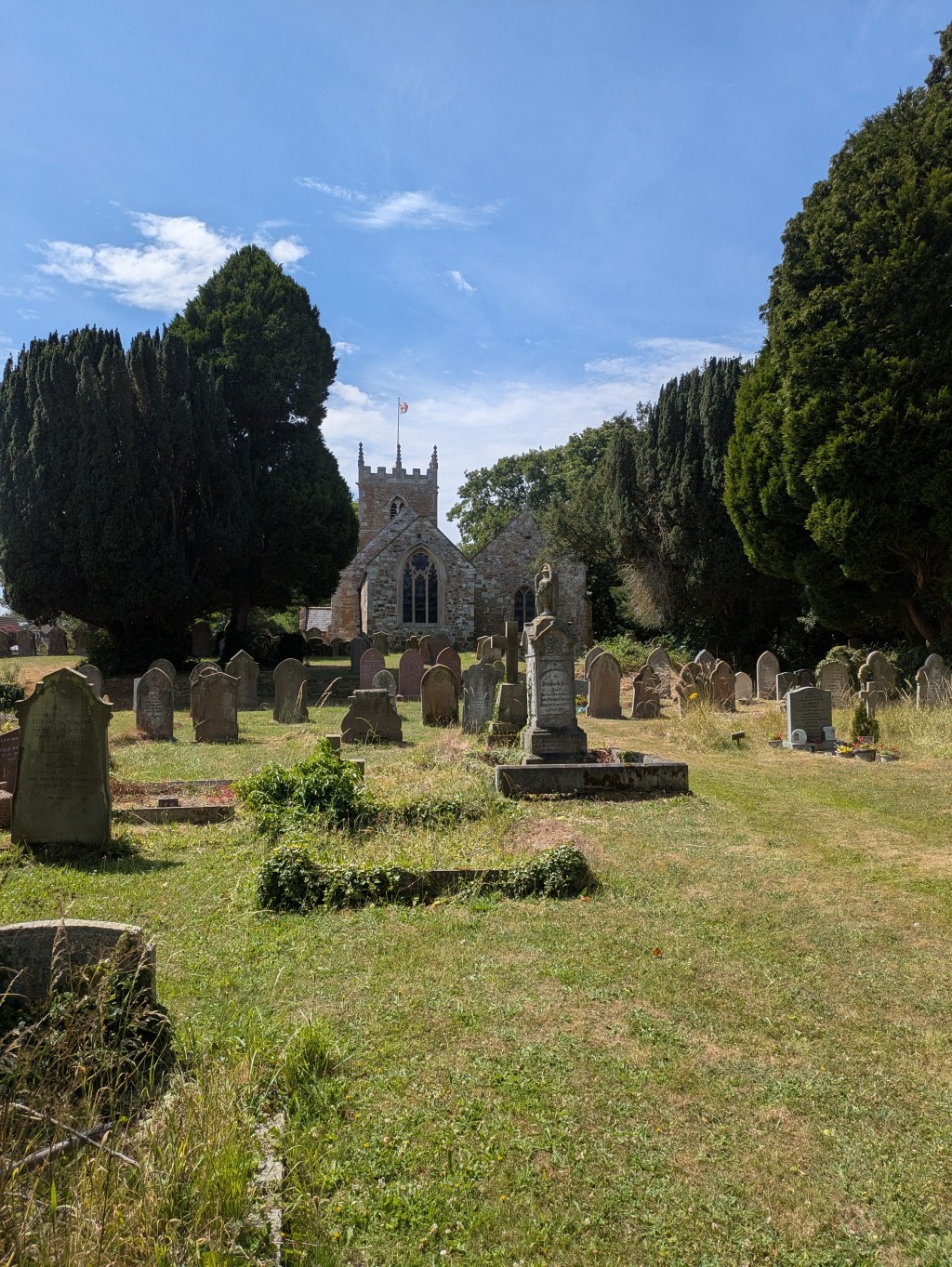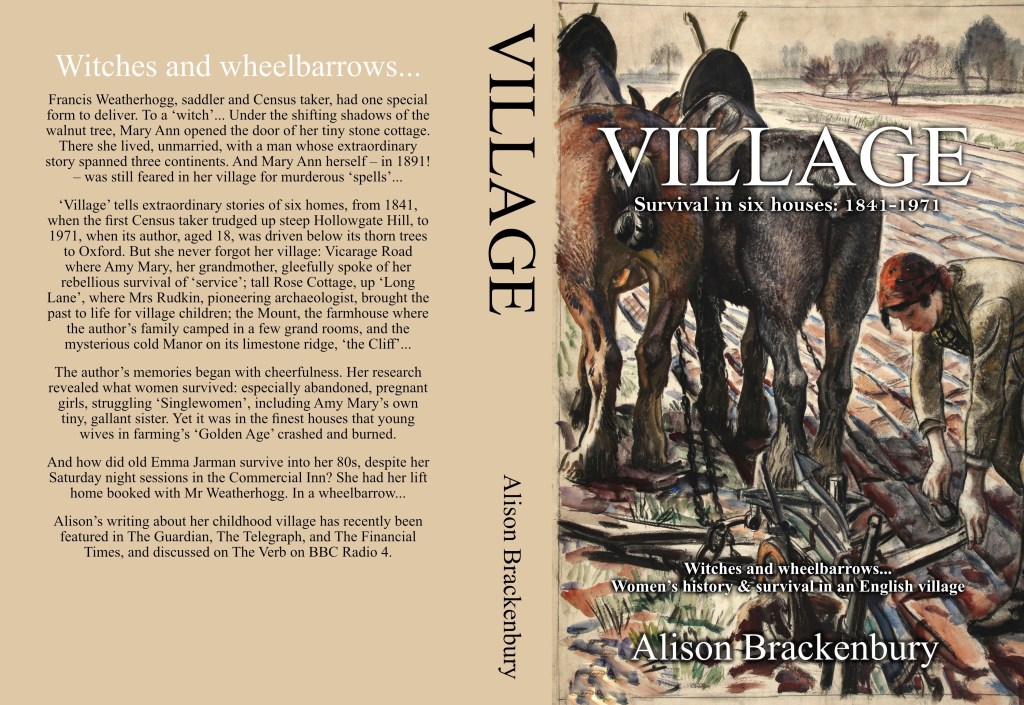Recently I had the pleasure of talking to a friend of mine called Rob, a Lincolnshire local who grew up and still lives in North Hykeham. Having spent the last couple of months planning events and researching in archives, I was interested in a more personal perspective on Lincolnshire folklore: how much of it is still present in the landscape? how well-known is it? and if not well, why not? Below is a transcript of our conversation, where Rob sheds some light on these questions, and suggests some potentially storied locations of his own.
Anna: Hi Rob, great to reconnect with you. Could you start by saying a little about your connection to Lincolnshire?
Rob: Of course. When you asked for an interview, I thought, ‘now, I don’t really know much about Lincolnshire folklore.’ And then I started thinking about what I did know. Why don’t I know more?
I was actually born just on the outskirts of London. We moved to Lincolnshire when I was five, so I’ve been here for thirty-four years now. I’ve lived either in Lincoln City or in North Hykeham, just on the outskirts, for pretty much that entire time. I’ve been around long enough to consider myself as being ‘from Lincoln’, although my parents are not native to the county.
One of the interesting things is that Lincoln is a beautiful part of the country. It genuinely is, when you compare it to other places. When I travel for work and I go to other cities, I find Lincoln so much easier to be in: the city centre is very well laid out, its tourist attractions are picturesque, you can see the cathedral from pretty much anywhere in the city, and it’s really very nice. One of the things I never realised when I was a kid growing up in Lincoln was how nice it was. My expectation was that all British cities were like this. And then I went everywhere else… [laughs] For example, in Lincoln, the journey up to the cathedral is a pilgrimage, because you can see it all the way across the city and throughout the climb up Steep Hill.
Then the Lincoln Imp is, of course, a whole thing. I remember going to the cathedral with a school trip, and they showed us the Imp and told us the whole story about it. Every time I see the picture of the Lincoln Imp or hear an update about our football team, who are called the Imps, I like the fact that I know what the Lincoln Imp is and the story behind it.
Anna: What’s the version of the story you heard, because there are a couple?
Rob: I’ve heard two. One is the story where the imps got into the cathedral, and they were making a mess and ruining things, and an angel was like ‘oh, Hell no!’ and turned them all to stone. And I don’t know if the other one is a theory I concocted when I was a kid or whether it was an alternative that was put to me, but it goes that when whoever was commissioned to carve all the grotesques in the choir, the stonemason decided it would be a hilarious prank to put an imp in a cathedral. I bet some stonemason was just up there, chiselling away and decided he’d just carve a little imp up there and it would be fine.
Anna: That’s delightful, and regardless of whether you heard this theory or came up with it yourself, that is exactly how folk stories proliferate.
The last time we met up, we spoke about King Arthur. So, my next question is: where did your interest in folklore, and mythology more generally, start?
Rob: I think it’s from my parents. A lot of my interests have come from things they were interested in first. My dad has always been into all kinds of history; that was his thing. So, we used to go on holiday around the UK, visiting archaeological and heritage sites. We’d go to old castles and learn about their history, but also the folk stories that were attached to them. One time, we went to Wales, to stay with my grandparents who lived there. And while we must have visited lots of castles – Wales is chock-full of them – I particularly remember a tacky tourist-trap. We were funnelled through a series of exhibits: I remember distinctly a tableau where a goblin was stealing a baby out of a crib and leaving a goblin child behind, and at the end there was a film about King Arthur and about his last battle with Mordred.
It must have been that story that sparked my interest in King Arthur. I made my dad take me there every time we went to see my grandparents for about five or six years in a row. There must have been something about that film that captivated my imagination. It really brought the romance and nobility of King Arthur to the fore for me. Thinking about medieval history, it must have been grim to live during the middle ages, but thinking about King Arthur and his knights also made it feel cool.
Anna: That is such a striking origin story. Have you ever drawn on Lincolnshire folklore or the folk heroes of Lincolnshire in a similar way you have on King Arthur?
Rob: No, I don’t really know of any folk heroes from Lincolnshire. I think we have a headless horseman somewhere… around.* I’m not sure exactly where, and I’m not even sure it was specifically Lincolnshire. I’m sure there was a village somewhere, and there was a highwayman who was going to be hanged there. But as he was about to be executed, a bolt of lightning struck nearby, shocking everyone, giving him a chance to escape. Apparently, he jumped on a horse, and somehow got his head chopped off as he was trying to escape, but his hands were tangled in the reins and his feet staid in the stirrups, so his corpse galloped off into the distance.
I imagine if something similar ever truly happened in history, it’s no wonder that something so traumatic would stay in the collective memory. In terms of folklore, in my experience, Lincolnshire is a lot more about ghost-stories. As for the folk heroes, I’ve never heard about any.
Anna: That’s a very common thing I hear – that people do not often associate Lincolnshire with folk stories to the same extent that they do Cornwall, or Berkshire, or Wales. And that’s a great shame, because it is no poorer for those stories.
Rob: I think part of the problem is that Nottingham is right next door, and they have Robin Hood.
Anna: Are there any stories, as big or as small as you like, that you heard at school or in your childhood? Any games kids played that involved supernatural characters?
Rob: Not really, we did all the ones that were widespread nationally. There were plenty nursery rhymes about the Black Death. The again, Lincolnshire has a lot of Airforce bases. My parents weren’t from Lincolnshire, so they didn’t have that stock of stories to tell me, and when I got to school many of the kids around me were children of personnel and therefore not local and very transient. There wasn’t a lot of continuity in my childhood.
And it’s not that I’m not interested in folklore. I saw the post that went up on the website recently about the Tower on the Moor. That’s really close to me, I could go visit. I was surprised that the idea never crossed my mind before. But now I’ll definitely go and check it out.
The Lincolnshire Folk Tales Project is grateful to Rob Jones for his time and candour.
*The headless horseman story Rob references may be the Headless Horseman that rides down the track from the village of Scamblesby to Farforth in the Lincolnshire Wolds. Sean, writer of the Lincolnshire Gothic blog, writes about him here.







Leave a comment